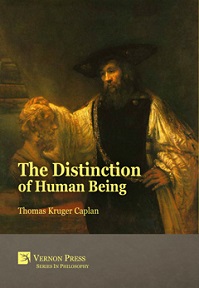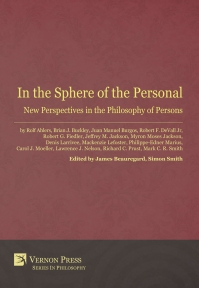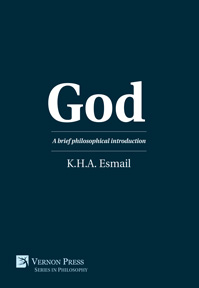Beyond Realism: Seeking the Divine Other
A Study in Applied Metaphysics
by Simon Smith (University of Surrey)
Purchase this book
(click here to change currency)
"This is a very interesting book. Its strength lies in articulating a non-realist (I hesitate to say ‘anti-realist’, since this has different connotations) theory of God. It does this first by attacking realist theology, then by critiquing the process philosophy of Whitehead, then by articulating an alternative reading of Austin Farrer to that proposed by Edward Hugh Henderson, and finally by interpreting Feuerbach’s The Essence of Christianity as a personalist theological ethics. Throughout, the argument is very close, immanent and detailed. The point-by-point demolition of Byrne is completely convincing. The subtle weaving through Whitehead’s philosophy shows how its logical terminus is in atheism. The engagement with Henderson establishes a contested hermeneutic, whereby the author successfully rescues Farrer from the clutches of orthodoxy. The interpretation of Feuerbach is something of a tour de force. The approach taken throughout is to argue for a non-realist theology by critiquing proponents of opposing views, with constant reference to Austin Farrer (and to his literary executor, Charles Conti). The result is a very rich text, which both proposes a new theory of the religiosity of consciousness per se, as well as shedding new light on Farrer, reinstating him as a major thinker of the twentieth century."
Dr. Karl Simms,
University of Liverpool, UK
"In seeking to recover Austin Farrer’s metaphysical personalism, Beyond Realism is the natural successor of Charles Conti’s Metaphysical Personalism (1995). Its style and form of argument is uncompromising, but repays close study. It is not a work for students unless very well prepared. But I celebrate its search to recover the deep connections between philosophy and theology – its careful unpicking of the ‘realism’ of Peter Byrne, its appreciation of the limits of process theology and its argument for the consequences of Edward Henderson’s argument for ‘prior actuality’. This is an energetic recovery of an anthropology of theology in Farrer that has its (unlikely) roots in the thought of Feuerbach and understands religion as a natural state of consciousness. It properly places Farrer at the very centre of religious thought in the century of Wittgenstein and in company with other, now sadly neglected philosophers like D Z Phillips. At the same time, it clearly establishes Farrer as a philosopher and theologian in the context of Farrer as a preacher in a unity of theoria and praxis. We need tough and intelligent books like this in both philosophy and religion. Whether it will attract a wide readership in our time of sad theological decline is another matter. It should."
The Revd Canon Professor David Jasper DD FRSA FRSE
Professor Emeritus, University of Glasgow, UK
The meaning of “God-talk” remains the fundamental issue facing religious thinkers today. This study concerns the analogies needed to make sense of that talk. Embracing those analogies signals the application of Austin Farrer’s cutting-edge theology. Almost fifty years after his death, Farrer remains one of the twentieth century’s last great metaphysical minds, his grasp of faith and philosophy unequalled. Having defended religious thought against both Positivist and Process reduction, he pursued his own revision of scholastic tradition, ultimately developing the vital corrective to an overweening impersonalism, one which depersonalises the divine so severs the cosmological connection.
Following this course returns us to an earlier tradition, to a metaphysic of persons exemplified in the expressions of lived faith. This draws upon the logic of personal identity: what it means to be, or rather, to become, a person. Hence, journey’s end lies in a Feuerbachian anthropology of theology or ‘anthropotheism’. Like Farrer, Feuerbach used the believer’s language to relocate theology and philosophy within a framework that makes fertile use of anthropomorphic personifications to ‘think’ God.
Revisiting the personalist presuppositions of metaphysics in this way throws light on the most vital questions of personal identity. To answer them is to ‘draw’ reality on a grander scale than either realism or consequentialism is capable of. Most importantly, it is locate our place within that image.
Doing theology dynamically or psychologically informed – as both Farrer and Feuerbach insisted – means recognising the constitutive role such images play in self-construction. Without active participation in our ideals and aspirations, we cannot become persons at all; participation entails the enactment of our prospective selves. This returns us to the practice of piety: faith in a Godly person. Here we find the reconstruction of Feuerbach’s anthropology as applied theology and, by extension or amplification, the completion of Farrer’s personalist metaphysics.
Abbreviations used in this work
Introduction
Summary of the Argument
1. The Incoherence of Realism
1.1. Innocent Realism: Review and Overview
1.2. Language and Realism
1.3. Empiricism and Realism
1.4. Grace Jantzen and ‘Relativist Transcendence’
1.5. The Passive Observer
1.6. Theistical Realism and Theodicy
2. Process Theology: A Post-Modern Metaphysic
2.1. The Language of Process
2.2. The Ontology of Creativity and the Analogy of Consciousness
2.3. Equiprimordiality and Necessity
2.4. Behaviourism, Existentialism and Process Metaphysics
2.5. Process and Pragmatism
3. Prior Actuality and the Divine Playwright
3.1. High Transcendence and Prior Actuality
3.2. The Playwright Allegory
3.3. Theology and the Personal Analogy
3.4. The Trinity as Social Reality
The Story So Far
4. Gazing into the Glass of God
4.1. The Embodiment of Agency
4.2. In the Birthplace of Being
4.3. Anthropology and Anthropomorphism
4.4. A Psychology of Belief
4.5. Overcoming Abstractions
4.6. Reinvesting Consciousness, Reconstructing Theology
Simon Smith was awarded a D.Phil. in Philosophy by the University of Sussex in 2007. The philosophical theology of Austin Farrer was, and is, his primary subject matter; personalist metaphysics, his abiding interest. He is now the editor of Appraisal, journal of the British Personalist Forum. He is also co-editor of two volumes of essays on modern personalist thought. The first, with James Beauregard, is In the Sphere of the Personal: New Perspectives in the Philosophy of Persons (Vernon Press, 2016); the second, with Anna Castriota, is Looking at the sun: New Writings in Modern Personalism (Vernon Press, 2017). Having once taught philosophy at the University of Southampton in the UK and the Modern College of Business and Science in Oman, he now lives happily in the library at the University of Surrey, where he scavenges for food among the law periodicals. Buried deep in the Surrey Downs, he occasionally pursues a more perfect alignment of science and religion through the diverse forms of personal analogy at work in modern physics and modern metaphysics.
Austin Farrer, Alfred North Whitehead, Peter Byrne, Edward Hugh Henderson, Ludwig Feuerbach, J. L. Austin, P. F. Strawson, Stuart Hampshire, Martin Buber, Emmanuel Levinas, Marx W. Wartofsky, Charles Conti, Activist epistemology, Activist ontology, Analogy of persons, Anthropology of theology, Anthropotheism, Consciousness, Descriptive metaphysics, Innocent realism, Metaphysical Personalism, Personal identity, Personalism, Philosophy of action, Process theology, Realism, Neo-Realism, Scholastic theology, Voluntarism
See also
Bibliographic Information
Book Title
Beyond Realism: Seeking the Divine Other
Book Subtitle
A Study in Applied Metaphysics
ISBN
978-1-62273-225-8
Edition
1st
Number of pages
342
Physical size
236mmx160mm

![Beyond Realism: Seeking the Divine Other [Hardback]](/file/3463/7a23f14f2dd59324183511f718c7a37f/1488741754.jpg)





